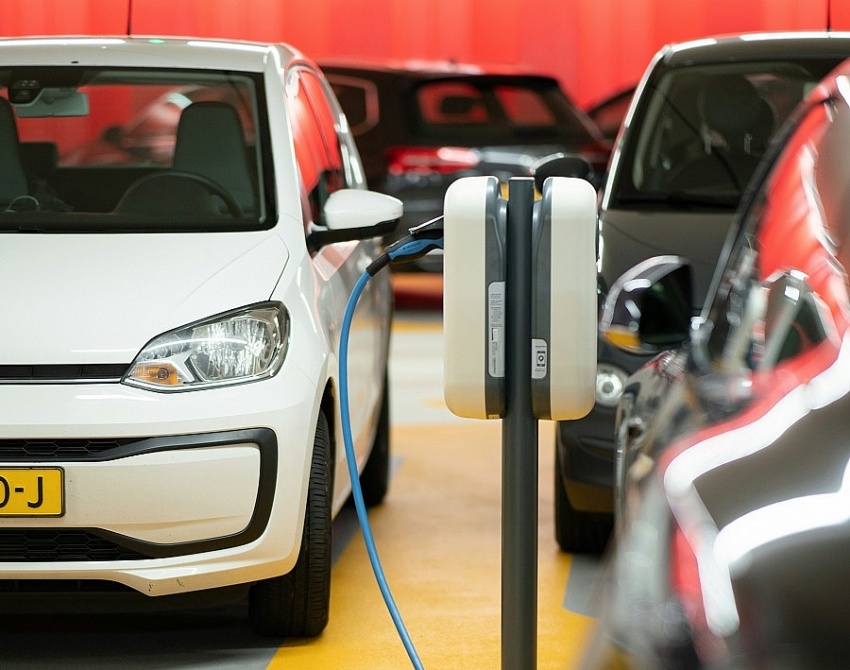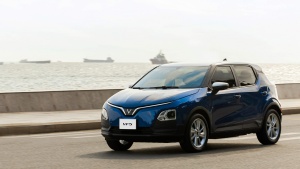Vietnam remains focused on EVs for sustainable growth
The report from May 9 indicates the country’s electric two-wheeler (E2W) market, the largest in ASEAN and second globally behind China, is leading this transformation.
"Vietnam’s annual E2W and electric car sales could rise from under one million in 2024 to over 2.5 million by 2036," the report projects, highlighting the market’s vast potential.
 |
Three years ago at COP26, Vietnam committed to achieving carbon net-zero by 2050, bolstered by a $15.5 billion G7 pledge to support its decarbonisation efforts. The country's Power Development Plan VIII, released the following year, outlines a clear roadmap for achieving renewable energy targets.
E2Ws are set to dominate this growth due to their affordability and high local production rate, with Vietnamese consumers favouring two-wheelers, which outnumber cars by 30 to 1. Despite this preference, the EV market holds significant promise, with only 5.7 per cent car ownership compared to over 60 per cent motorcycle ownership in 2020. The Vietnam Automobile Manufacturers Association estimates 3.5 million electric cars will be on the road by 2040.
However, Vietnamese EV makers, particularly VinFast, face challenges in the electric car segment, including high prices, range anxiety, and limited charging infrastructure. Overcoming these barriers will require substantial government support, such as BEV registration fee exemptions and reduced import duties.
"Investment in infrastructure is critical," the report states, estimating $12.3 billion is needed for renewable energy capacity and EV charging infrastructure from 2024 to 2040.
Vietnam’s extensive rare earth reserves, the second largest globally, are poised to further boost the domestic EV ecosystem. These elements are crucial for EV production, especially in motor magnets.
Foreign investment and partnerships are essential for Vietnam’s green automotive shift. Japanese and South Korean companies have significantly contributed to the automotive industry, with major car manufacturers like Honda, Toyota, and Hyundai among the top foreign corporate taxpayers.
As the EV market expands, local producers are expected to secure the entire supply chain and enhance cooperation with Chinese firms. VinFast’s parent company is partnering with China’s Gotion High-Tech to develop LFP batteries and build lithium-ion factories in Ha Tinh province. TMT Motors has also announced a strategic partnership with a SAIC-Wuling and GM joint venture.
Chery Automobile, a Chinese automaker, is establishing Vietnam's first Chinese EV plant, an $800 million joint venture with Geleximco, set to produce 200,000 vehicles annually by the start of 2026. This increased Chinese involvement is expected to boost production integration with Thailand, where BYD is building a $504 million plant to export EVs to Vietnam, leveraging ASEAN's zero per cent import tax.
Furthermore, VinFast aims to expand its production capacity from 250,000 to one million vehicles annually, with Indonesia as a key export market. VinFast recently signed an MoU to supply 600 EVs to Indonesian businesses and is establishing an EV assembly plant there.
 | VinFast to debut in the Philippines market VinFast Auto will officially enter the Philippines electric vehicle market in late May 2024, with its diverse and smart green mobility solutions. |
What the stars mean:
★ Poor ★ ★ Promising ★★★ Good ★★★★ Very good ★★★★★ Exceptional
Related Contents
Latest News
More News
- Trung Nam-Sideros River consortium wins bid for LNG venture (January 30, 2026 | 11:16)
- Vietnam moves towards market-based fuel management with E10 rollout (January 30, 2026 | 11:10)
- Envision Energy, REE Group partner on 128MW wind projects (January 30, 2026 | 10:58)
- Vingroup consults on carbon credits for electric vehicle charging network (January 28, 2026 | 11:04)
- Bac Ai Pumped Storage Hydropower Plant to enter peak construction phase (January 27, 2026 | 08:00)
- ASEAN could scale up sustainable aviation fuel by 2050 (January 24, 2026 | 10:19)
- 64,000 hectares of sea allocated for offshore wind surveys (January 22, 2026 | 20:23)
- EVN secures financing for Quang Trach II LNG power plant (January 17, 2026 | 15:55)
- PC1 teams up with DENZAI on regional wind projects (January 16, 2026 | 21:18)
- Innovation and ESG practices drive green transition in the digital era (January 16, 2026 | 16:51)

 Tag:
Tag:




















 Mobile Version
Mobile Version